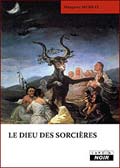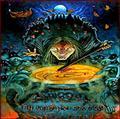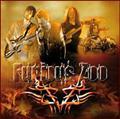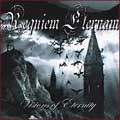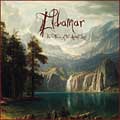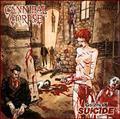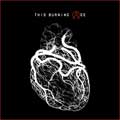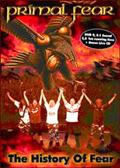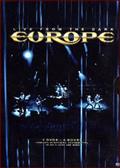TRIOSPHERE (no) - The Road Less Travelled (2010)
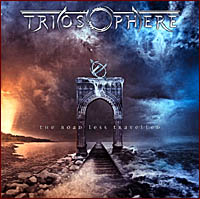
Label : AFM Records
Sortie du Scud : 28 mai 2010
Pays : Norvège
Genre : Power Metal mélodique
Type : Album
Playtime : 11 Titres - 51 Mins
TRIOSPHERE est, comme son nom ne l’indique pas, un quatuor norvégien, formé à la base en 2004, par le guitariste Marius Silver Bergesen et la bassiste/chanteuse Ida Haukland. Après un premier album paru fin 2006 (Onwards), TRIOSPHERE devient rapidement l’un des poulains préférés de l’écurie AFM Records, apparaissant à plusieurs reprises sur diverses compilations du label. Et avec ce second album, The Road Less Travelled, dire que les espoirs fondés par AFM envers le combo norvégien sont justifiés, tient du doux euphémisme.
En effet, The Road Less Travelled a tout, mais alors tout du témoignage discographique d’un groupe qui a su trouver son style, se rôder sur scène et peaufiner ses compos jusqu’à atteindre la quasi-perfection. A la première écoute, la voix particulière et plutôt puissante d’Ida Haukland évoque les débuts d’ELDRITCH et la tessiture d’un Terrence Holler au sommet de sa forme sur le « Lord Of An Empty Space » d’Headquake. Et même si cette référence n’a rien d’actuelle, elle témoigne néanmoins d’une similitude en termes de fraîcheur. Oui, The Road Less Travelled est frais, ce disque procure beaucoup de plaisir dans un domaine (le Power Metal très mélodique) où pourtant, tout semblait avoir été dit …
A cela, il faut y voir plusieurs raisons. D’abord, on l’a dit plus haut, TRIOSPHERE bénéficie du soutien de son label, et donc de moyens conséquents : rien à redire sur la production de The Road Less Travelled. Ensuite, le quatuor est loin d’être constitué de manchots : le batteur Orjan Jorgensen et le guitariste T.O. Byberg complètent un line-up talentueux et soudé. Tandis que le premier nommé fait un véritable carton (il se déchaîne dès le début de l’album avec « Driven » et la pression ne redescend jamais !), le deuxième forme avec Bergesen un duo de six-cordistes complice. Enfin, Ida assure une rythmique à la basse plutôt conventionnelle mais c’est surtout sa voix qui retient l’attention. Ses parties vocales se retrouvent souvent doublées voire triplées, évitant à TRIOSPHERE l’utilisation abusive de claviers comme c’est souvent le cas dans le genre. En général dans TRIOSPHERE, tout se fait à quatre instruments, rarement plus, à l’exception de certains passages joués au piano (notamment les dernières notes de « Marionette »). Mais alors quelle voix ! Loin des divas du Metal ou des cracheuses à la Angela Gossow, Ida symbolise à elle seule l’alliance de la sensibilité et de la puissance.
Ajoutez à tout ça 9 chansons (on ne compte pas les intros et outros) réellement agréables, où TRIOSPHERE se plaît à évoluer aux limites du Power mélodique et du Hard FM, et vous comprenez pourquoi The Road Less Travelled a de l’allure. Difficile d’extraire une chanson plutôt qu’une autre, chaque rythmique se veut entraînante (« Human Condition », « Watcher », « The Road Less Travelled ») voire bondissante (« Death Of Jane Doe »), conservant la même dynamique de A à Z. La mélodie est toujours de rigueur, teintée parfois d’une pointe de mélancolie (« Marionette »), et même sur un tempo plus mesuré, à l’image de « Worlds Apart », TRIOSPHERE excelle en tous points. Ce qui s’apparente à une ballade (« The Anger And The Silent Remorse ») semble parti pour être moins réussi que le reste … Mais voilà que la machine s’emballe pour s’intégrer efficacement au répertoire de TRIOSPHERE et s’achever dans un déluge de guitares savoureux.
Non, vraiment, The Road Less Travelled ne présente que très peu de défauts, réussir un album de cette qualité dans un registre aussi encombré par les pointures et groupes de seconde zone tient de l’exploit. TRIOSPHERE peut-il prétendre à une place de grand espoir du Metal ? Assurément. Et faites que le nom donné à cet album (« la route la moins empruntée … ») n’ait rien de prémonitoire.
Ajouté : Vendredi 27 Août 2010
Chroniqueur : NicoTheSpur
Score :     
Lien en relation: Triosphere Website
Hits: 10086
|



